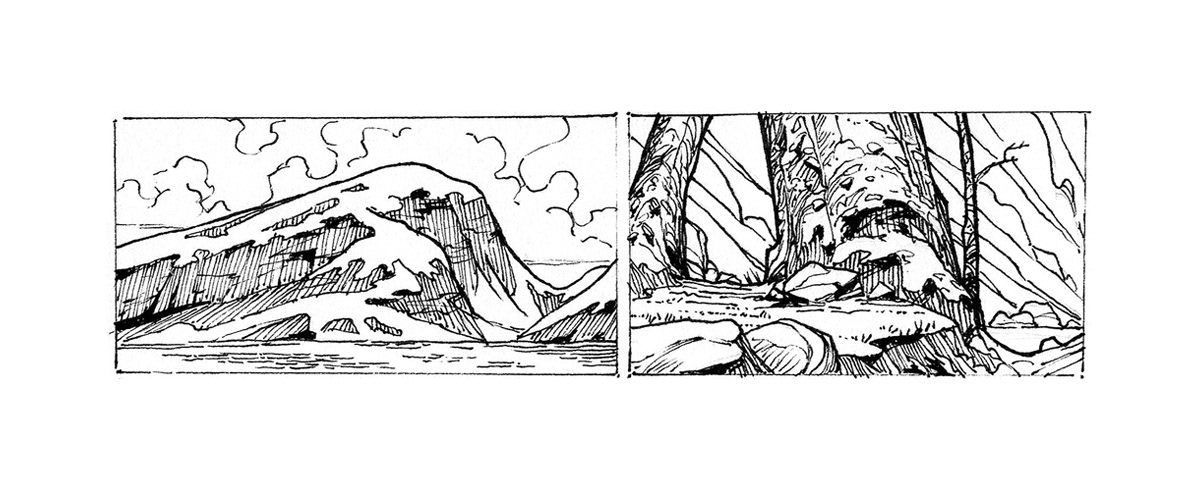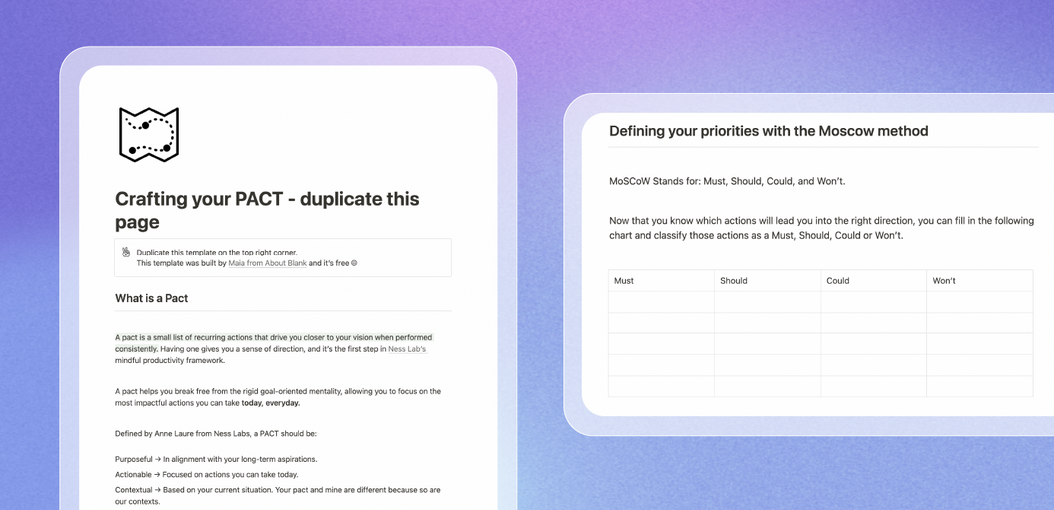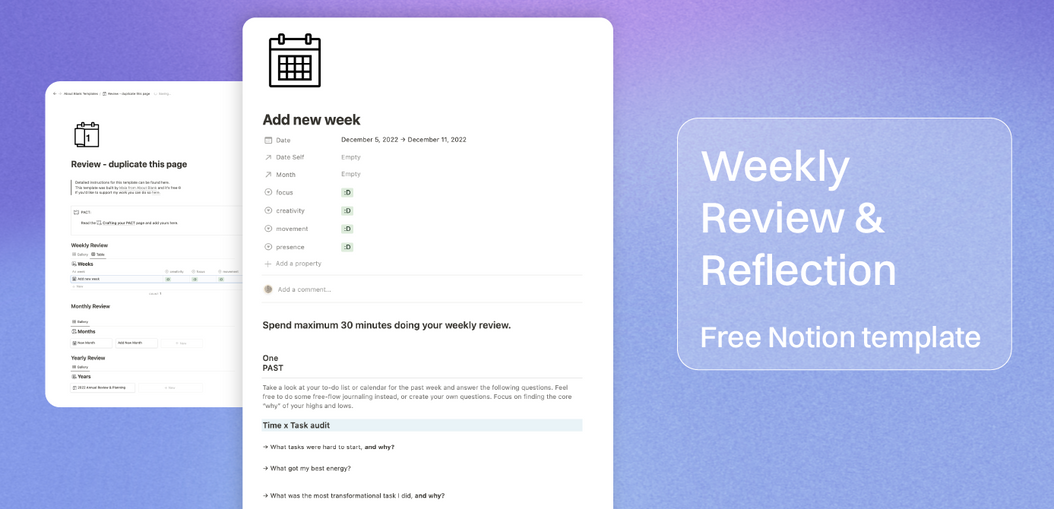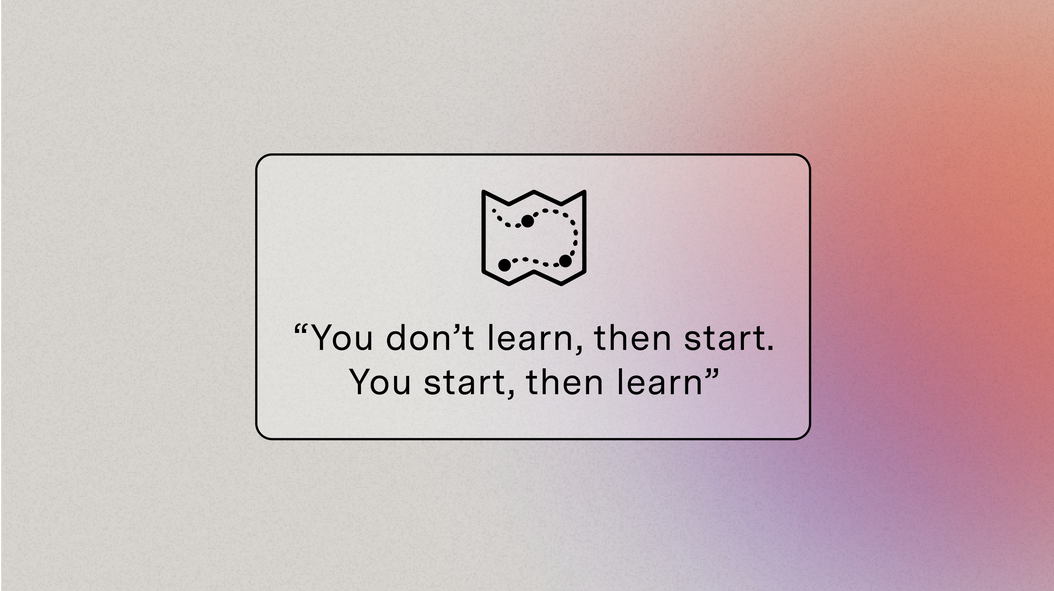
Our culture is rooted in the need to achieve and accomplish. If there's one big lesson that I've learned during these travels through Nepal, is that we are so scared of "wasting time". As a freelancer, and studio owner I can say that us entrepreneurs have a special fobia for it.
Today I want to talk about a concept that has made me realize that most of the time we go against the energy of the moment, and we force actions instead of jumping into the flow that will naturally lead us where we want to go. This concept is called Wu Wei, and it is translated as "non-doing".
Personal :: skippable :: story
At the beginning of this year I had the idea of starting a mindful productivity blog, and I've encountered so many paradoxes ever since. I mean, even "mindful productivity" feels like the biggest one. Again, too much on my plate; overwhelmed on starting a productivity blog. Lol. Life's humor.
The blog and newsletter only started happening when I stopped thinking about it. When I distanced myself from the idea. I accessed flow. Yeah sure, it took two weeks in Nepal, learning about Taoism, and lots of meditation to get here. But these travels made me evaluate practices that I thought were productive, but now they feel like a pile of useless friction that I gripped on to for mental stability.
What is Wu Wei?
A central concept of Taoism and often referred as "effortless action", Wu Wei is not about "doing nothing" as our lil western brains might think. Rather, it is about aligning our movement with the greater flow of life.
Or less esoteric: carry out with maximum skill and efficiency even throughout the most frenetic tasks, by being able to recognize the energy of the moment and utilizing it. All that sounds great, how the fuck do we access flow? How do we get to that minimum effort maximum result leverage point?
In my personal (and very short) experience with Taoism and Wu Wei, I've found a couple of themes that have made me un-fuck the concept of "wasted time".
One: Timing – learning how to work with the energy of the moment.
Learning when not to work is as important as learning when to.
We've all experienced this: there are pockets of time during the day that where we enter a state of connectedness to what we are doing. All our efforts become simultaneously productive and effortless. We become one with the very thing we are trying to do.
Other moments, it feels like the absolute opposite. Swimming against the current type shit - clicking things and switching tabs, leading into nothing.
I guess the art of Wu Wei is recognizing when to do what. Effortless action: learning how to listen to the energy of the moment is the biggest takeaway from Tao.
How do we read in the energy of the moment? If you're on your screen (notebook, canvas, etc) and you truly feel like you're going against the current, stop. Yeah fuck, I know, deadlines. But a 15-20 minute break will not kill you. In fact, it will help you ease into it.
Science behind it
Research published in the scientific journal “Cognition” (excellent journal!) has shown that short breaks and diversions can cause a significant improvement in one’s ability to keep focused on a task for long periods of time.
I'm planning on writing an article on the Pomodoro Technique, a practice that consists in using a timer, and working for 30 minutes, resting 5. I use this every single day and it has helped me boost productivity in a million ways. Some of the biggest benefits I've seen are fighting cognitive fatigue, cutting distractions by using my phone only on the 5 minute break, and minimize interruptions.
Two: Finding flow before flowing
You wouldn't run a marathon without stretching first, right? Why do we wake up, drink coffee and jump right into work?
Since a while ago I've noticed that if I don't do my morning routine (workout, journal, meditation) before clocking in, I will not feel as present. And I notice that what would take me a couple of hours, takes me longer because my mind is wandering.
Finding rituals that ground you into the present moment is important if you want to find flow. This can look like a 5 minute meditation, 2 pages of journaling, a 5 minute stretch routine. Whatever lands you works.
Nature
I'm not gonna tell you to go for a hike if you can't find focus. But, when your mind is foggy and you truly feel like you're swimming against the current, can you look out the window and see how the sun effortlessly delivers sun rays for the plants to do photosynthesis? Can you appreciate how the wind softly breezes the leaves of the trees? Can you step outside, and breath in deeply, noticing how your lungs effortlessly fill in with oxygen, and breath out co2 without you trying?
Master nature, not by conquering it, but by becoming it. See each natural process as a teacher, you will find beautiful analogies for what you're trying to achieve in nature; the words will start filling your empty pages like waves fill the ocean, the order of the tasks will reveal itself to you like stars reveal itself one by one at night. Your flow is within you, you access it by becoming it.
Neuroscience behind wu-wei
Because we love philosophy but we need our scientific back-ups.
"The crux of wu-wei lies in the absence of effort, which is related to absence of a sense of self or self-consciousness making that effort" Says Terry Orlick One of the pioneers in sport psychology, who has has helped hundreds of Olympic and professional athletes maximize their performances and achieve their goals through Mental Training.
He devoted an entire chapter in his classic mental preparation guide entitled In pursuit of excellence: How to Win in Sport and Life Through Mental Training to discuss the experience of Tao in sports, where he recognises the value of suspending all thoughts or judgments about oneself, others, or one's performance as an approach for peak performance".
Specifically, Orlick recommends letting go of outcomes, letting go of forcing things, letting go of one's thoughts about the outcome, and being fully connected and inseparable from the task while performing it, to enter what he describes as the flow state.
So, if the absence of a sense of Self making that effort is the way to access flow, what does that mean? I think this is the beautiful self-interpretation part where personal practices like meditation, journaling and other mindfulness techniques are key.
Conclusions
- Knowing when not to work is important.
- Experiment with rituals and practices (such as meditation, breath work, journaling) before work, to see what helps you stay focused.
- Take breaks regularly and mindfully.
- Let go of the thoughts about the outcome, and let go of forcing things
- Learn from observing nature: everything gets accomplished.
- re-evaluate your concept of wasting time.
Bibliography
- Models of performance excellence: Four approaches to sport psychology consulting
- Science direct: The wu-wei alternative: Effortless action and non-striving in the context of mindfulness practice and performance in sport
- MIT press: The embodied mind: Cognitive science and human experience
- Cognition: Brief Diversions vastly improve focus
Beautiful thoughts by beautiful Alan Watts on letting go of controlling everything.
Here's the last issue of Colectiva Magazine (my other Newsletter) about Taoism.


